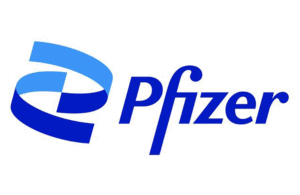 FDA has granted priority review to Pfizer’s (NYSE:PFE) bispecific antibody elranatamab for patients with relapsed or refractory multiple myeloma (RRMM).
FDA has granted priority review to Pfizer’s (NYSE:PFE) bispecific antibody elranatamab for patients with relapsed or refractory multiple myeloma (RRMM).
Also known as PF-06863135, the immunotherapy won breakthrough therapy designation from the FDA for RRMM in November 2022.
The FDA has also accepted elranatamab’s Biologics License Application (BLA) while the European Medicines Agency (EMA) has accepted its Marketing Authorization Application (MAA).
Pfizer anticipates that it will commercialize elranatamab later this year.
The company estimates that elranatamab could generate $4 billion in peak sales. Pfizer anticipates that the drug candidate could capture between 40% and 80% of market share.
Elranatamab targets B-cell maturation antigen (BCMA) on the myeloma cell while binding to the CD3 protein present on the surface of T-cells. The drug candidate can thus unite myeloma cells and T-cells. That action activates the T-cells, enabling them to destroy the myeloma cells.
According to a healthcare provider survey from Pfizer, approximately 70% of respondents were impressed with elrantamab’s profile.
The BLA and MAA regulatory filings were based on results from the ongoing Phase 2 MagnetisMM-3 (NCT04649359) study focusing on patients with RRMM.
The study enrolled 187 total participants, who represented a heavily pretreated population. Volunteers in the open-label study had received at least three classes of prior therapies, including a proteasome inhibitor, an immunomodulatory agent and an anti-CD38 monoclonal antibody.
RRMM patients got a 76 mg dose of elranatamab monotherapy each week. They received a two-step-up priming dose regimen in the first week to minimize side effects.
At a median follow-up of 10.4 months, elranatamab recipients had an objective response rate of 61%. A total of 55% had an at least very good partial response rate.
In the study, the drug candidate appeared to have a manageable side effect profile.
If approved, elranatamab would be a novel treatment for multiple myeloma. As the drug could be administered subcutaneously, it would offer more convenience over intravenous administration.
Other companies are exploring CAR-T therapies and naked monoclonal antibodies as therapies for multiple myeloma. Examples of the latter include felzartamab from Morphosys and I-Mab and Takeda’s anti-CD38 antibody TAK-079.
Filed Under: Oncology



